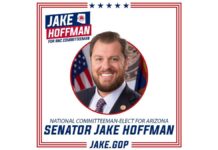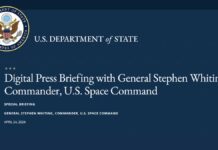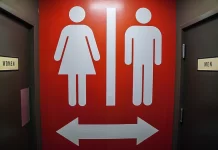WASHINGTON, D.C., December 12, 2023 – U.S. Senator Katie Britt (R-Ala.), a member of the Senate Committee on Rules and Administration, today led all Republicans on the committee in introducing the Citizen Ballot Protection Act, the Senate companion bill to H.R.4316, which is legislation originally introduced by Representative Gary Palmer (AL-06) that would ensure States are able to better verify that only American citizens are voting in federal elections.
As drafted, the bill would codify the ability of States to require that an applicant provide proof of American citizenship when registering to vote via mail-in application.
“Voting in our country is a sacred right that must solely be limited to American citizens. To allow States to uphold this principle should be simple commonsense,” stated Senator Katie Britt. “We are seeing certain cities across our nation begin to openly allow noncitizens to vote in local elections. This effectively disenfranchises hardworking American citizens, insults those American citizens who came to our country legally and took the time and effort to go through the citizenship process, and undermines faith in our entire electoral system – which is a cornerstone of our nation that we cannot allow to crumble. It should not be controversial that States have the legal right to prevent noncitizens – including illegal migrants and official representatives of foreign adversaries – from voting in State and Federal elections. I’m proud to work with Representative Palmer and my Senate colleagues to ensure that we pass this legislation and stand up for the right of Americans – and only Americans – to vote in American elections.”
“The American people deserve an election system with impeccable integrity. I am glad Senator Britt is joining me in offering a solution to protect the vote of American citizens,” said Representative Palmer. “Her companion legislation will help stop the steady march toward allowing noncitizens to vote in elections around the country. Allowing noncitizens the ability to vote creates endless opportunities for fraud, which will counteract restoring faith in the American election process. This is unacceptable. I look forward to seeing our bills pass in both chambers of Congress.”
Original co-sponsors of the legislation include all Republican members of the Senate Rules Committee – Senate Minority Leader Mitch McConnell (R-Ky.), Senate Rules Committee Ranking Member Deb Fischer (R-Nebr.), and Senators Ted Cruz (R-Texas), Shelley Moore Capito (R-W.Va.), Roger Wicker (R-Miss.), Cindy Hyde-Smith (R-Miss.), and Bill Hagerty (R-Tenn.)
Washington, D.C. will allow noncitizens who have been residents for more than 30 days to vote in local elections starting in 2024, opening the door to the possibility that foreign nationals, including embassy staff from countries such as China and Russia, could be casting ballots at the polls in our nation’s capital.
In recent years, cities in Maryland, Vermont, and New York have also passed measures allowing noncitizens to vote in local elections.
H.R.4316 was reported favorably from the Committee on House Administration on November 30.
Background:
While States have the primary responsibility of overseeing federal elections, the National Voter Registration Act (NVRA) of 1993 – also commonly referred to as the “motor voter law” – lays out certain registration requirements for federal elections.
The Citizen Ballot Protection Act relates specifically to Section 6 of the NVRA, which requires that each State accept and use the federal mail voter registration application form developed by the U.S. Election Assistance Commission.
Section 6 also allows a State to develop and use its own mail voter registration form as long as it meets all of the same criteria the NVRA requires for the federal mail voter registration form. Specifically, NVRA states that the federal mail voter registration form:
- May require only such identifying information (including the signature of the applicant) and other information (including data related to previous voter registration) as is necessary to enable the State election official to assess the eligibility of the applicant to vote.
- Shall include a statement that specifies each eligibility requirement (including citizenship), contains an attestation that the applicant meets each requirement, and requires the signature of the applicant under penalty of perjury.
- NVRA further states that the federal mail voter registration form may not include “any requirement for notarization or other formal authentication.”
State modifications to the federal form are reviewed by the U.S. Election Assistance Commission.
Unfortunately, both the Election Assistance Commission and the courts have begun interpreting the prohibition on “any requirement for notarization or other formal authentication” as precluding efforts by some States to include a requirement of documentary proof of American citizenship with the federal form.
One of the most notable instances of this issue is a 2013 Supreme Court ruling which held that Arizona could not require documentary proof of citizenship on the federal registration form without U.S. Election Assistance Commission approval.
The Citizen Ballot Protection Act is a two-page bill that simply amends the NVRA to explicitly allow States to put in place a proof of citizenship requirement for both the federal mail voter registration form and any State mail voter registration forms that they might develop.
###













































